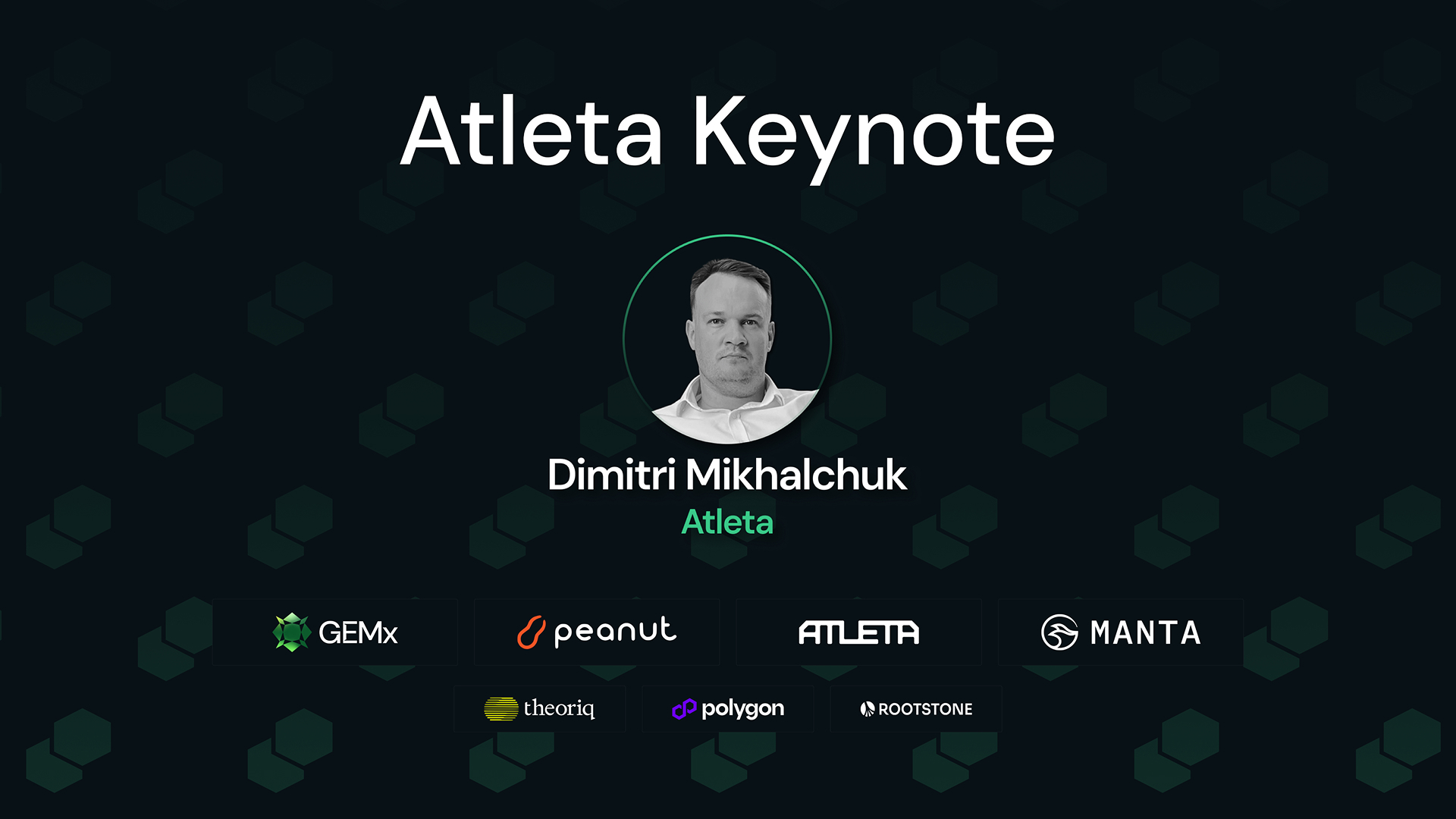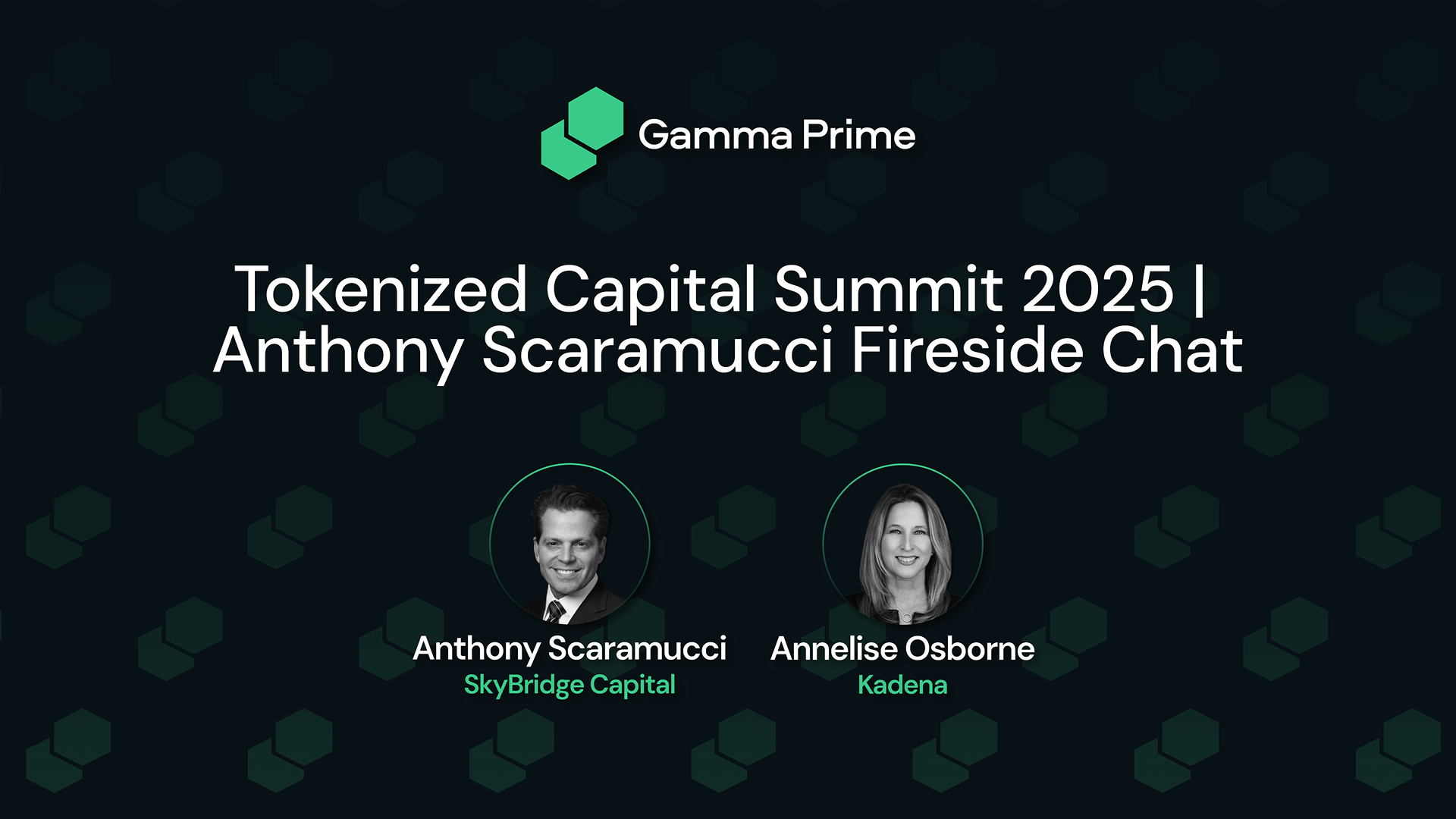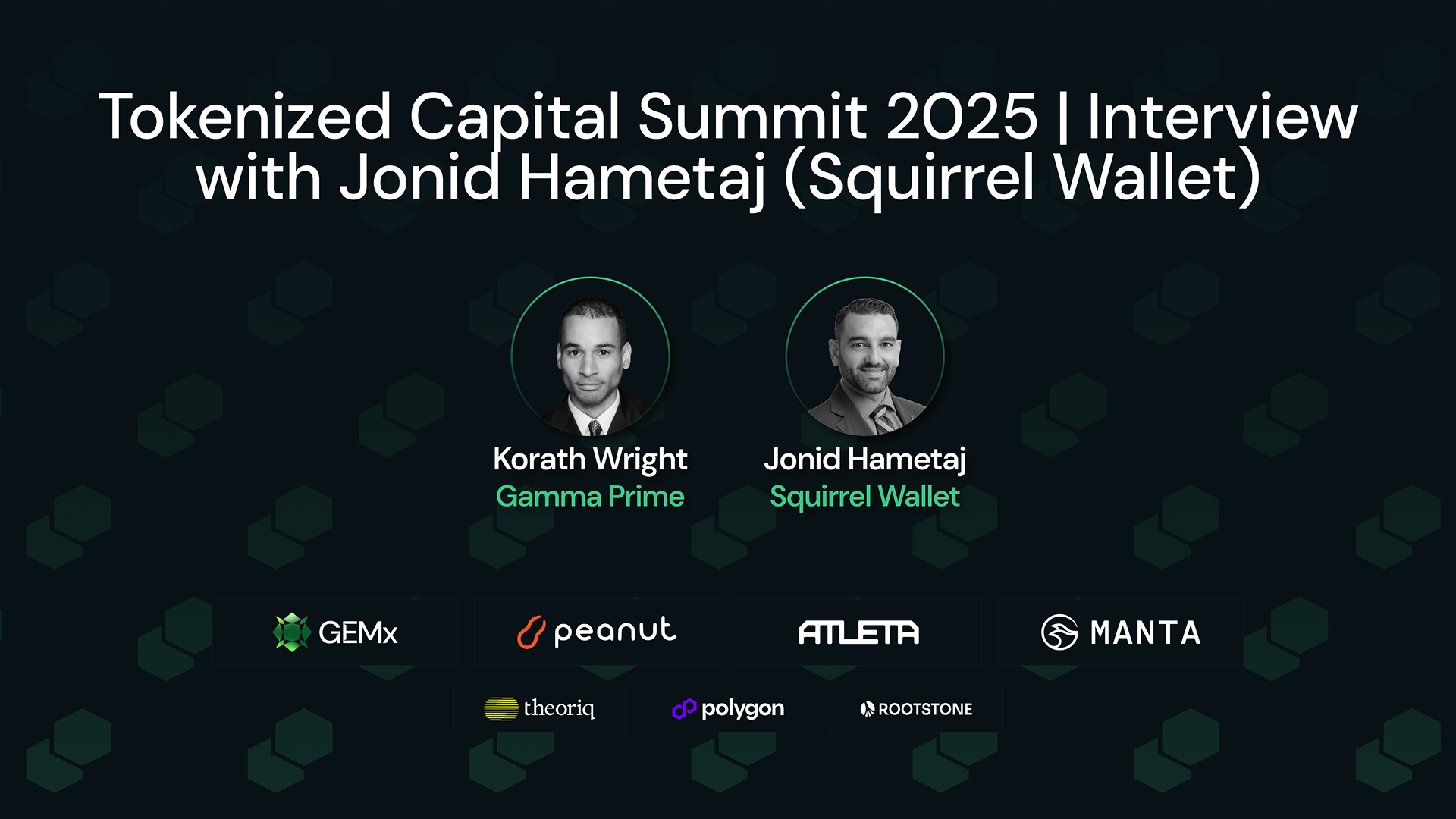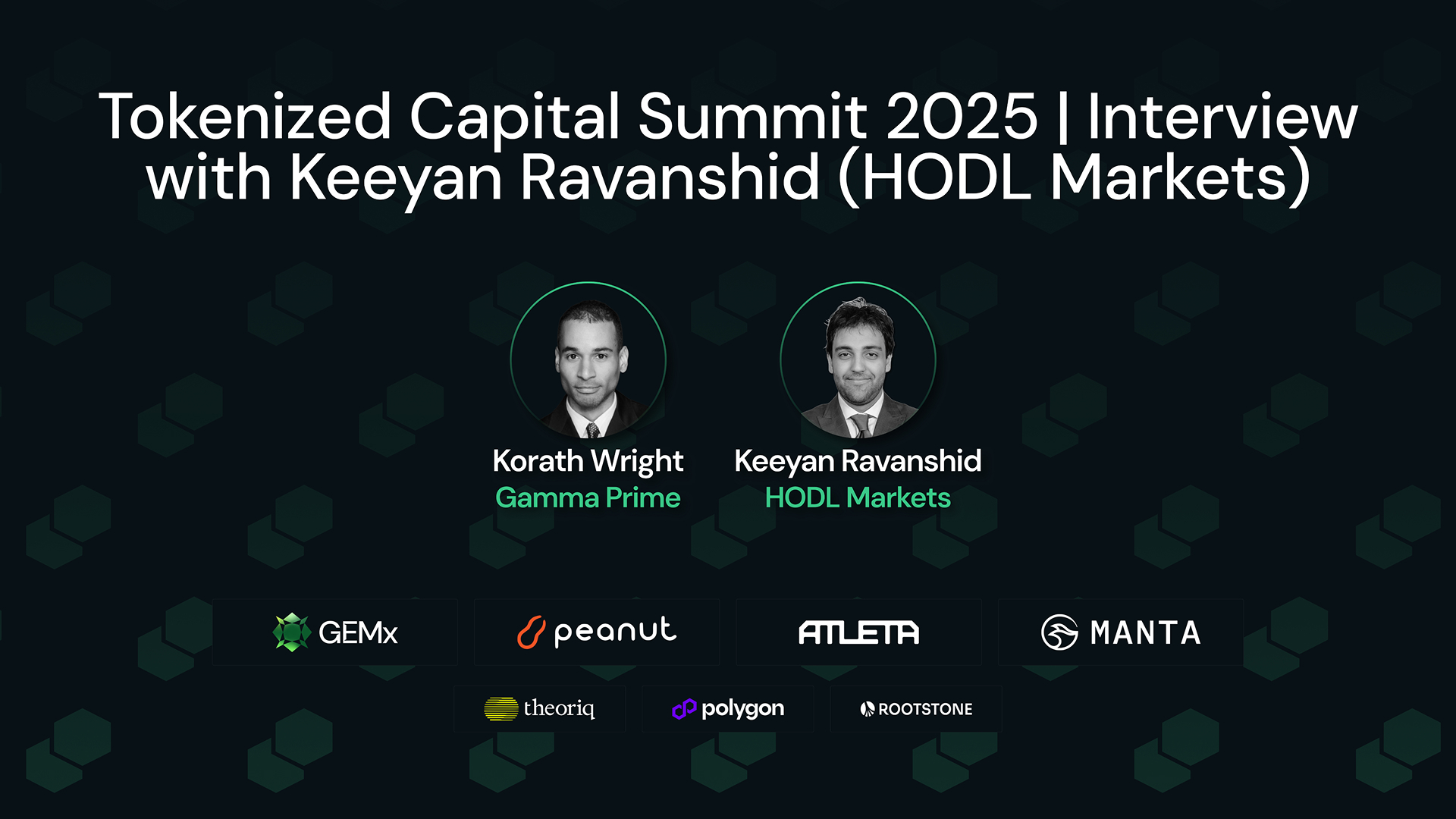Watch the video of this keynote speech on Gamma Prime’s YouTube channel:
Keynote speech with Dimitri Mikhalchuk (Commercial Director at Blockchain Sports)
Blockchain Sports and Atleta Network introduce a revolutionary ecosystem that tokenizes sports assets, bringing transparency, fairness, and community participation to a $500B+ industry. By leveraging blockchain, AI, and fan-driven finance, they empower everyone — from governments to local communities — to support athletes, fund clubs, and redefine how global sports are financed and governed.
Dimitri Mikhalchuk (Blockchain Sports)
So today I present Blockchain Sports and Atleta Network, the layer-one blockchain we’ve listed. We went TG about three weeks ago. It’s part of a massive ecosystem, and Blockchain Sports stands for security, scalability, transparency, trust, and engagement.
We propose to tokenize sports assets, opening the potential for wider retail participation in sports finance.
Some of the fonts haven’t loaded, so I’ll have to explain a few things in a more cryptic way. Essentially, we want to give the retail public access to participate in sports asset acquisition and provide transparency in an industry that’s often plagued by unfair play, under-the-table deals, and obscurity—especially regarding athlete transfers and costs. Nobody really knows how these mechanisms work.
This market already has an annual turnover of $500 billion, so it’s large enough to regulate, put a spotlight on, and make fair for everyone involved. On top of that, it already includes a massive global following.
Blockchain Sports itself is an ever-growing project—an extensive ecosystem. To give some perspective, we’ve already connected with different sports and titles, including sports marketing through WAP, a sports marketing agency that helps us promote various assets. We’re working in motorsport, drift, and football, which is currently our main focus. Football, being one of the largest sports by global following, is the first we’ve started tokenizing and listing.
We’re leveraging computer vision and AI to provide near real-time data on everything happening in sports—training, practice, and competition. This data will be fully transparent and unobscured, while also helping grassroots athletes grow.
We aim to improve transfer opportunities and create better chances for underserved communities to get noticed. Many agents can’t reach the most remote areas—for example, we’ve worked with potential football players from the favelas in Brazil, where many don’t even own a pair of shoes. It’s an unsafe environment, so agents rarely go there, and as a result, a lot of talent goes unnoticed. Yet, some of today’s top world champions come from favelas—those lucky enough to get out.
Imagine being able to highlight talent living in remote areas and redefine how talent progression works.
Today, Blockchain Sports is already a massive ecosystem, expanding into various industries. We capture live series production, aiming to cover everything—from first training steps to professional levels on TV. We’re looking to collaborate with TV channels that buy this content.
We’ve also built academies and own football clubs to prove that what we’re building truly works. We’ve been operating several football clubs and MotoGP academies for over a year now, some for more than two years. This gives us extensive data and experience from within the industry, helping us understand the specific complexities of each sport.
There’s already a range of sports lined up that we’re in discussions with and plan to engage in within the coming months.
Today, I want to talk about our flagship product — Blockchain Sport Arena. Essentially, it is the tokenized asset platform, trading platform where the followers, the fans, they can support their athletes, they can support their own clubs. We work with federations and we work with larger entities, so we go directly to minister sports of different countries. The value prop is that we would like to offset some of the capital that flows in or through our platform. We would love to donate to the smaller academies, to the kids, to bring up the potential. The sports industry itself is of prime interest to the government to keep the nation healthy normally. However, the funds are not always available to support that, so we would like to finance the social aspect of it at the same time as expand the amount that turns over in sports in general.
Atleta Network is a tier one, is a layer one blockchain that has a multi-layered structure which provides the data layer, which will be populated with the data on different athletes, will provide access to the agents, will have secondary markets, tertiary market to different entities. At the same time, it will help us to highlight the remote, the youngest potential talent, to help them actually get on the social lift, get out there, get seen, and participate in different sports activities.
At the same time, we give the capability for the first time of a fully transparent legal means of supporting any athlete within any vertical that we would wish to. For instance, when we go into some places, favelas, the district would like to support this prodigy child whose parents cannot support him to basically train. It takes capital, it takes effort. He will need to travel, to have traveled to other clubs, to other countries in order to bring his value up. So the local community can support him with whatever little money is available until he wins, for example, the national competition. He gets highlighted so the nation gets behind him, which creates bigger capital available to this person. Then, when we go international, the international communities start supporting this underdog, and so on and so forth. You can imagine that the community becomes the main driver. It’s no longer the ultra-high-net-worth who can afford buying a two billion dollar club that will be looking after this kid; it’s the two billion people that will be looking after these kids, who have a much, much bigger buying potential. That way, we can redefine how talent is being nurtured, how talent is being supported, and how we as a community participate in decision-making in sports and in our particular club, supporting our clubs and entities within the sports industry.
On the Atleta side, we’re also inviting layer two projects to join us. We’ve seen a number of different projects already coming on board, such as, for example, a fully authenticated memorabilia partner who is using our blockchain to put the NFC tags and essentially providing the cleanest and most transparent way of authenticating the memorabilia that’s being circulated on the market. There’s a lot of things going on, so that’s a clear, very clear, very easy way of utilizing blockchain and so on. We have staking opportunities, so for liquidity funds, it is a good time to join us to speak about it at least. But we have very good support already from the institutional, from the Web2 world into sports, so we’re pretty well covered, well financed. But staking is another thing that would support the actual blockchain network.
When we talk about the Atleta Market, so Arena as we call it, Blockchain Sports Arena, it redefines the fan-driven economy. This is where fans, having amassed enough traction, will be able to actually have a say as to how the regulation is being transformed. Because at the moment, for instance, when we look at FIFA, nobody can even argue with FIFA. Whatever they decide is just decided one-sided, and even though football has three billion fans, not much can be heard from that side. It’s all decided by the management of FIFA, and the rest of football will have to follow. No other way.
When we go about the clubs, the clubs in general need funding year on year, every year, and that funding at the moment can only be reached through club marketing, which is quite limited. Whereas once we open the potential investment or potential donation platform, where the capital can flow in through the crypto side, it opens up a much wider buying power. The community can even come from abroad. It’s fully transparent and legal, so we take care of the legal hurdles in order to cover that transparency and capability to participate.
When we look at the analysis of how many players can participate, how many spectators can participate, we expand the economy from 500 billion dollars a year to five trillion or near so. You can imagine that today the crypto market cap, the entire crypto market cap, is 3.7, so immediately we see that Web2 has a lot more capital which is undeployed, which is available, which is disposable cash, but no means to utilize it in any way in professional sports. Currently, professional sports is still a domain of high net worth or larger entities that keep on buying, selling assets themselves. Sports in general, 4 trillion, as I said, 4 billion followers, and therefore, by tokenizing this whole space, by providing a very clear way of participating to support the athletes and clubs, it becomes a safe space, a much bigger marketplace, and a lot of opportunities are unlocked through that.
That’s all that I wanted to cover today. Thank you so much, and I’m open to questions. So if no questions, we’ll see you around. We will be hanging out in the hall, so let’s talk, let’s discuss things, sports. Thank you.



